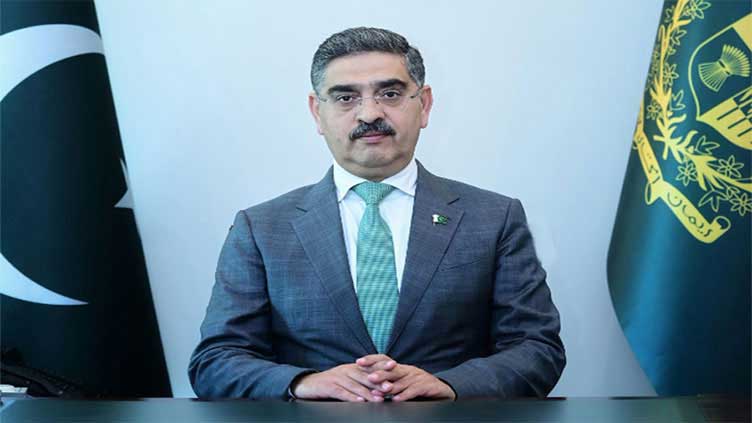Pakistan can grab vast benefits out of Chinese BRI: PM Kakar
Caretaker Prime Minister Anwaarul Haq Kakar expressed optimism about Pakistan’s economic transformation through collaboration with the Chinese Belt and Road Initiative (BRI). In an interview with CGTN, he emphasized the significant role Pakistan could play in the BRI and highlighted the early successes of the China Pakistan Economic Corridor (CPEC), which addressed energy deficiencies and positively impacted Balochistan. Kakar anticipated job creation and enhanced infrastructure in the second phase of CPEC, particularly in Special Economic Zones (SEZs). He underscored the unprecedented global connectivity facilitated by the BRI and its potential to stimulate cultural and civilizational ties. The prime minister also emphasized the importance of bilateral cultural exchanges, people-to-people interactions, tourism, and media collaboration between China and Pakistan.
ISLAMABAD (APP) – Caretaker Prime Minister Anwaarul Haq Kakar has said that Pakistan could transform its economic position by tapping the potential of the Chinese Belt and Road Initiative (BRI).
“I expect that Pakistan would be a very important partner in this journey with this BRI initiative,” he said in an interview with the Chinese media group CGTN.
He said Pakistan could get a big push from the BRI. “This is a great opportunity knocking right at our door…President Xi is asking us to come and grab that opportunity and I am hopeful that we can do that,” he remarked.
Replying to a query regarding the multi-billion dollar China Pakistan Economic Corridor (CPEC), he said the early harvest programme which was the first phase of CPEC had already been realized that encompassed development of Gwadar Port, road and air connectivity, and the energy projects.
He said before the launch of CPEC, Pakistan was energy deficient country, however some 8000 MW of energy had been contributed to the national grid under the mega project. He maintained that the projects under CPEC had brought positive results among common people especially those belonging to the province of Balochistan.
“We are expecting and hoping that the transformation from first phase to second phase which of course will be dependent on the transformation and diversification of industrialization specially in Special Economic Zones (SEZs),” he added.
He said the second phase would actually bring job creation, more livelihoods and further enhancing infrastructure in Pakistan. He explained that BRI would help enhancing global connectivity and the connectivity between oceans and lands to such level that seemed to be unprecedented in the documented human history.
“Mankind has never seen such depth of physical connectivity with one another which definitely does stimulate our civilizational and cultural connectivity.”
Replying to a question about his recent visit to Xinjiang- the North Western area of China, the prime minister said since it was the bordering area of Pakistan’s Northern area Gilgit Baltistan, therefore it was very important for Pakistan.
“We can not only develop lot of tourism in that region but also in rest of Pakistan through that connectivity.” He said China was a natural and reliable ally of Pakistan in all the three domains including security, politics and economics.
The prime minister stressed the need to promote bilateral cultural exchanges, people to people interactions, tourism and also collaboration of media houses from both countries.
Chinese envoy Zhao Shiren urges students to uphold integrity and strengthen China-Pakistan ties
LAHORE:The Consul Generals from several countries and other distinguished guests attended …











